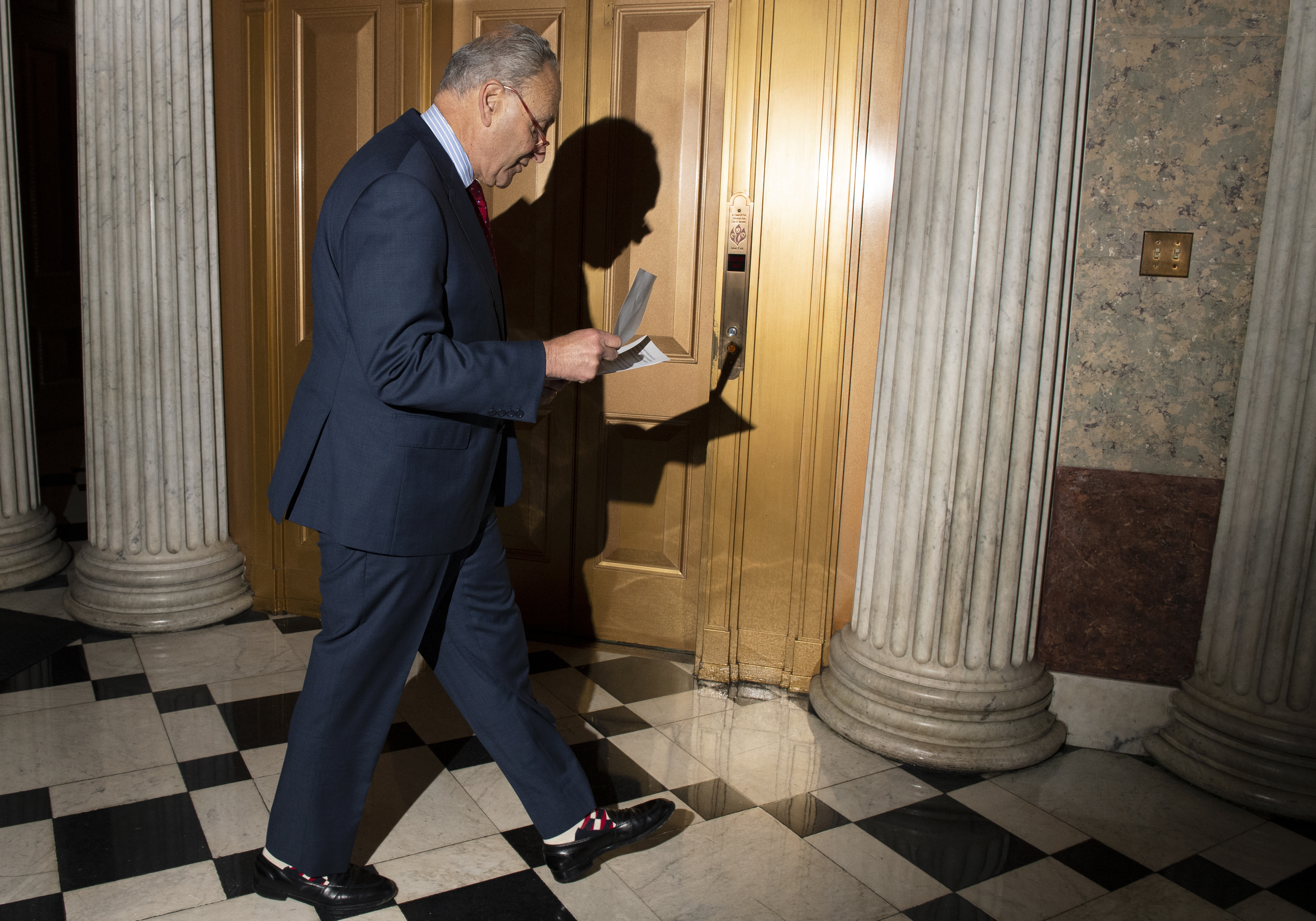Schumer outlines Democratic demands on spending bills
Aside from border wall issue, Schumer brings up opioids, infrastructure, VAWA

The top Senate Democrat laid down some benchmarks Monday for his party’s support of final fiscal 2020 appropriations bills.
Minority Leader Charles E. Schumer said on the Senate floor that the bills will need to include “significant resources” for programs intended to combat the opioid epidemic and gun violence; infrastructure and child care spending; increased or at least level funding for Violence Against Women Act programs; and additional funds for election security.
The New York Democrat also said he would continue to oppose the Trump administration’s bid to preserve the authority it used to transfer $3.6 billion from military construction projects to an “expensive and ineffective border wall” earlier this year.
“Senate Democrats strongly oppose the president stealing money from our military families to pay for this border wall. We have fought for provisions to stop this theft, we will continue to do so,” Schumer said. “I hope my Republican colleagues muster the courage to stand with the military families in their states, whose funds have been robbed to build this vanity project of President Trump.”
[Related: Congress seeks to avoid an approps nightmare before Christmas]
Schumer praised Republican and Democratic appropriators for reaching agreement before Thanksgiving on how to divide $1.37 trillion in spending among the 12 annual bills. But he cautioned that the deal on subcommittee allocations, known as 302(b)s, is just an initial step in the endgame process.
“I’m very pleased we have an agreement on 302(b)s. We must now build on that momentum to make sure the final appropriations bills help the American people as much as possible,” he said.
Congress has less than three weeks to work out some sort of spending package before a stopgap spending measure expires on Dec. 20 at midnight.
There is some doubt that all 12 spending bills can pass on time, leading to speculation about which bills can be approved this year and which departments will have to operate on another continuing resolution running into early next year.
“It could be resolved now, but whether the House and the Senate leadership can actually sit down and work through this in the middle of impeachment and actually put the focus on getting a result, I don’t know,” said Sen. James Lankford, R-Okla.
“Appropriations has become a frustrating place, only because the bills really aren’t coming to the floor, they really aren’t being amended in committee. So much of the decision making is happening on the senior level and everyone’s a spectator,” he said.
Wrapping all dozen bills together into an omnibus package would be the quickest way to wrap up the process, but it also could increase the odds of a stalemate over the Homeland Security measure and wall funding. In addition, a catchall omnibus would violate the handshake deal reached by congressional leaders and the White House in July as part of the budget caps agreement. Appropriators instead have discussed splitting the bills up into a series of smaller bundles, though that could take more time to process on the floors of both chambers.





